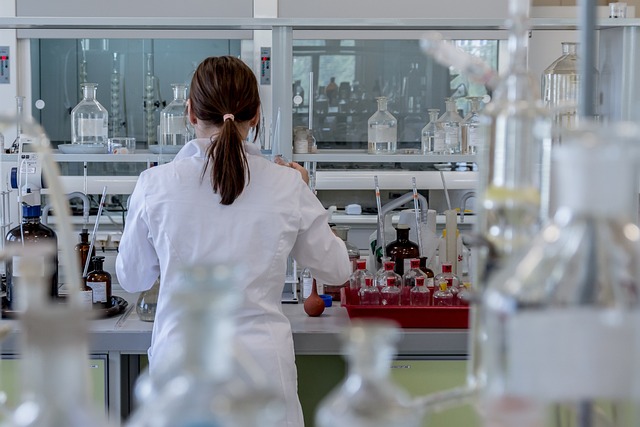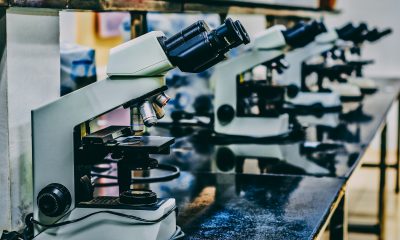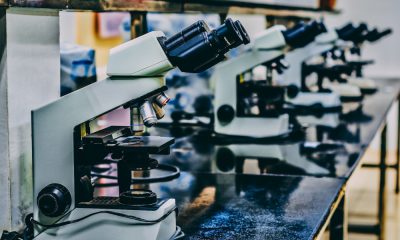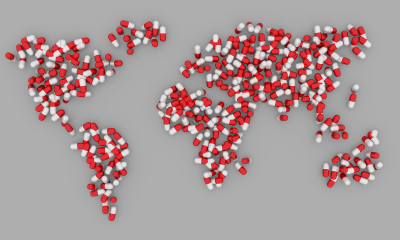Biotech
Pharmaceutical Investment in R&D Grows by 4.5% in 2023
The pharmaceutical industry sees a surge in R&D investment, reaching $145.5 billion last year, 4.5% higher than drug launch budgets in 2022. Deloitte’s report on pharmaceutical innovation underscores challenges like regulatory shifts and the need for adaptable clinical trials. AI offers promise in enhancing R&D productivity, especially in oncology and rare diseases.

More innovation for the pharmaceutical industry. In the last year, investment on research and development (R&D) in the sector was $145.5 billion, 4.5% more than what was allocated to launch new drugs in 2022, according to the latest performance report from pharmaceutical innovation prepared by Deloitte. This document analyzes a total of twenty companies in the sector, and this year ten R&D leaders have been interviewed.
According to the report, the increase in R&D spending can be attributed to factors such as more complex tests , regulatory changes or simply the impact of inflation. To improve the productivity of the sector, the document encourages the implementation of more flexible and adaptable clinical trials.
In parallel with the increase in investment, in 2023, the average R&D cost to advance an asset from discovery to launch remained stable compared to the previous year, to an average of $2,284 million per asset. The stagnation is due to a higher number of assets in the portfolio this year, due to the increase in the scope of assets.
The document also emphasizes the great challenges facing the biopharmaceutical R&D model, ranging from regulatory changes, the accelerated pace of scientific and technological advances and the loss of exclusivity in high-value assets . Against this backdrop, artificial intelligence (AI) presents new opportunities to improve R&D productivity, accelerating patient access to new therapies.

R&D investment has been higher in sectors such as rare diseases or oncology
Advances in AI, including generative AI, can enable companies to demystify the biology of complex diseases , accelerate drug discovery, reduce study timelines, reinvigorate the clinical trial experience, and improve regulatory success. Ultimately, the potential of AI could be the key to improving big data internal and external productivity challenges across the biopharmaceutical R&D industry.
Deloitte has already noted in other reports that digital technologies, automation tools and solutions based on patient experience can reduce the need for manual activities in the sector, resulting in savings in time and costs.
All in all, the biopharmaceutical industry is on the verge of large-scale disruption, driven by data, advances in AI, analytics and patient-centered care. R&D spending is rising in certain areas of the sector such as oncology and rare diseases. In the last year, 39% of those surveyed by the report said they focused their investment on R&D in oncology, while a third of those surveyed did so for rare diseases.
However, a turnaround in investment is expected in the future. Transforming R&D productivity requires companies to change the way they work, as well as their partnerships and collaborations, the study concludes.
__
(Featured image by geralt via Pixabay)
DISCLAIMER: This article was written by a third party contributor and does not reflect the opinion of Born2Invest, its management, staff or its associates. Please review our disclaimer for more information.
This article may include forward-looking statements. These forward-looking statements generally are identified by the words “believe,” “project,” “estimate,” “become,” “plan,” “will,” and similar expressions. These forward-looking statements involve known and unknown risks as well as uncertainties, including those discussed in the following cautionary statements and elsewhere in this article and on this site. Although the Company may believe that its expectations are based on reasonable assumptions, the actual results that the Company may achieve may differ materially from any forward-looking statements, which reflect the opinions of the management of the Company only as of the date hereof. Additionally, please make sure to read these important disclosures.
First published in PlantaDoce. A third-party contributor translated and adapted the articles from the originals. In case of discrepancy, the originals will prevail.
Although we made reasonable efforts to provide accurate translations, some parts may be incorrect. Born2Invest assumes no responsibility for errors, omissions or ambiguities in the translations provided on this website. Any person or entity relying on translated content does so at their own risk. Born2Invest is not responsible for losses caused by such reliance on the accuracy or reliability of translated information. If you wish to report an error or inaccuracy in the translation, we encourage you to contact us

-

 Africa7 days ago
Africa7 days agoCôte d’Ivoire Unveils Ambitious Plan to Triple Oil Output and Double Gas Production by 2030
-

 Biotech2 weeks ago
Biotech2 weeks agoGalicia Becomes First in Spain to Approve Gene Therapy for Hemophilia B
-

 Business4 days ago
Business4 days agoThe TopRanked.io Weekly Digest: What’s Hot in Affiliate Marketing [NordVPN Affiliate Program Review]
-

 Fintech2 weeks ago
Fintech2 weeks agoBitget Secures Operational License in Georgia, Strengthening Its Eastern Expansion

























